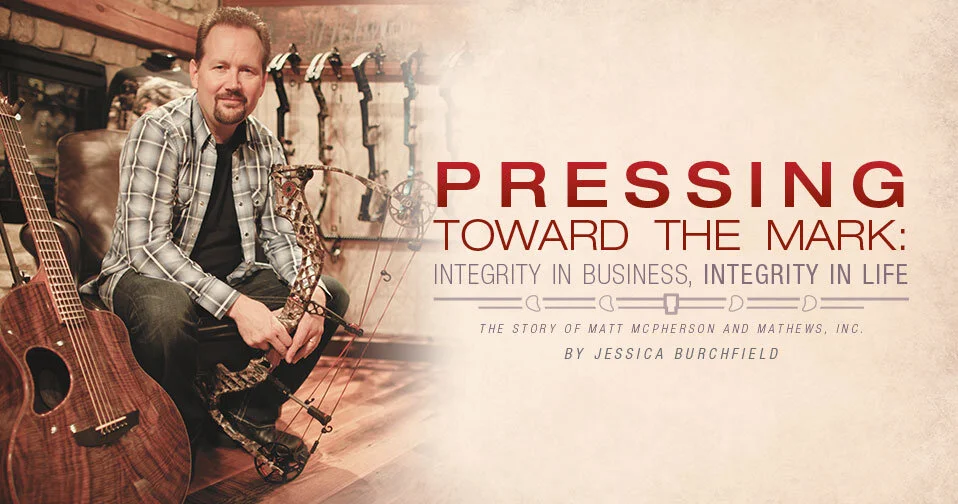A Faith-Based Entrepreneurial Ecosystem
— by Reuben Coulter
In our experience, a healthy faith-based ecosystem is built on five pillars. The first two pillars are foundational and unique to our faith, while the others are also applicable in the wider secular context.
Realisation of Identity and Purpose in Christ
Redemption of Business and Culture
Unlocking of Capacity and Creative Potential
Releasing of Resources for Growth
Utilising Technology as an Enabler
Realisation of Identity & Purpose in Christ
As Christ-following business leaders, we need a realisation that our true identity is as a loved daughter or son of Christ. We have articulated this as the Marks of a Faith-Driven Entrepreneur. It’s a journey, not a destination, and this process of transformation takes place through Renewal, Discipleship, and in Community.
Renewal - Our minds need to be renewed with a theology and vision of God’s ultimate mission of redemption and a belief that God invites us to partake in that mission. We need to be baptised in Word, Prayer, and the Holy Spirit, which guides us and empowers us to bring ‘His Kingdom on earth as it is in heaven’.
Discipleship - This is the process through which our walk with Christ deepens and our character is strengthened. Our lives are transformed through practices that make us Christlike and dependent on God.
Community - Our personal transformation is enabled by our Christian community—the Church. We should encourage, support, and hold each other accountable. For those of us blessed with wealth and power, our challenge is to embrace justice and generosity to empower those less fortunate and give them opportunities. For those of us without wealth and power, our challenge is to understand the abundance of God and live in righteousness to faithfully steward and grow what we have.
The local church should be central to this process. However, as described earlier, churches often have either an undeveloped theology of work or a distorted gospel of prosperity. Much work is required to support the global church to develop a Biblical understanding of business and the marketplace, and to support and disciple the entrepreneurial leaders in their midst.
Great examples of those engaged in this type of work include; C12 Group which provides peer-discipleship for executives in Brazil, Malaysia and Singapore, the Fearless leadership conference hosted by Mavuno Church in Nairobi, the author and thought-leader Andy Crouch who articulates the case for redemptive mission, and, of course the Faith Driven Investor and Entrepreneur podcasts which tell the stories of people pioneering in their field.
Redemption of Business and Culture
Businesses, which we as Christ-followers lead, should have a mission of serving God and others with our abilities, as grateful worship for the gift of life. These enterprises can express our faith through ministry in word and deed. We are ready to share the hope we have with gentleness and respect and in culturally appropriate ways, with employees, service providers, and customers. We create excellent products and services, as well as internal cultures and stakeholder relationships that God may use to further his work of redemption.
As our businesses flourish and scale we should gain influence and ability to shape cultural values through meaningful business relationships, which affords us an ability to love and serve our stakeholders and solve problems through markets. Over time this has a significant impact on the wider community and national culture.
Unlocking of Capacity and Creative Potential
As discussed earlier, unlocking capacity and creative potential is essential to enable entrepreneurs to grow and their ventures to scale. Rigorous research has been conducted by organisations such as Kaufmann Foundation and George Mason University on what elements enable support the unlocking of creative potential and enable entrepreneurship to flourish. These include:
Seeding an entrepreneurial culture
Nurturing talent and innovation
Providing capacity building programmes
Developing system infrastructure and policies
Enabling access or creating new markets
Mobilising appropriate investment
The strongest ecosystems are deeply rooted and led by local leadership but engage and partner with international expertise. In many countries, a vibrant secular entrepreneurial ecosystem and the role of Christians may simply be to come alongside existing organisations and initiatives to help them integrate faith and support their Christian entrepreneurs, rather than replicate all of their activities. For example in Kenya, there are many secular accelerators, incubators, and investors such as iHub, Village Capital, and Growth Africa. Faith-driven organisations like Sinapis and Transformational Business Network partner with these where possible. In Egypt, the lack of any acceleration programs presents an opportunity for Christians to influence the wider society. A local Christian business network has established a business accelerator programme, with support from Sinapis, an international organisation, and are growing an Egyptian mentor/ angel investor network.
Each of the business types, Unicorn, Gazelle and Oxen, require different types of capacity-building support and investment to enable them to grow. However, all of them require the foundational elements of Renewal, Discipleship and Community.
Consider the growth journeys of three very different faith-driven entreprises;
CloudFactory - Nepal, Kenya
Mark Sears has a vision of connecting one million people in the developing world to online work. This vision was born from a trip that he and his family had to Nepal over a decade ago. As a result he founded CloudFactory, which provides an on-demand digital workforce to help train and augment Artificial Intelligence (AI). Today CloudFactory employs over 5,000 people worldwide and revenue of over $25M. CloudFactory was supported in its growth by Praxis Labs, a US-based accelerator programme, which helped Mark refine his vision and build relationships with like-minded investors. Sovereign’s Capital, a faith-driven venture capital fund, were early investors and helped guide the company as it scaled.
Educor - Kenya
Prisca Muyodi is the founder and director of Educor, a Kenyan company focussed on Christian primary education. Prisca was able to join an intensive Lean Start Up training with Agora Enterprises which allowed her to use the lean canvas to get a better understanding of her business and where she needed to improve. Agora also provided her with one to one mentoring to help her grow. As a result, Prisca was able to put her business in front of outside investors including the Christian impact fund Talanton which has enabled her to scale further.
Affordable Abodes - Malaysia
Tim Tan is passionate to enable poor families to have a high-quality, low cost and environmentally friendly home. His model revolves around kenaf, a fast growing tropical plant which can be used as a better alternative to cement. Tim’s heart for the poor was birthed through his experience with his local church in Singapore and Malaysia. With encouragement from peers in a Christian business network, he left his comfortable job with a large real estate company to establish Affordable Adobes. Along the journey Tim was able to engage with Transformational Business Network in Asia which connected him to expertise and capital he needed to grow. Garden Impact, an impact investment fund led by Singaporean Christians, invested in his company and has supported the growth journey.
Mobilising Resources to Scale
A generous person will prosper; whoever refreshes others will be refreshed.
Proverbs 11:25
Wisely mobilising local and international resources (capital and expertise) is critical to enable enterprises to scale. Often, resources flood into an environment which doesn’t have the capacity to absorb it. At best this leads to inefficiency and waste, but it can often drown the shoots of transformation which we seek to nurture. Instead, as faith-driven investors and philanthropists, we want to provide a patient drip irrigation of appropriate support and capital. Building on the Unifying Principles of a Faith-Driven Investor, we need to listen and follow local leadership and build alongside their capacity and resources.
In the Cultivate and Seed stages of ecosystem development, this will depend significantly on Philanthropic grants or Catalytic (concessional) capital. We think it is appropriate to use this type of capital when:
Pioneering a new model or expanding into a new region
Providing enabling ecosystem infrastructure for the common good
Influencing and shaping culture or policy
Acting as risk mitigation capital to crowd-in other investors or scaling impact
Delivering social or spiritual outcomes (impact-first), where a commercial investment might dilute the impact
Over time the ecosystem will develop and have the ability to absorb greater volumes of capital—the type of capital required will shift to catalytic (concessional) and then commercial capital. This sequencing is important because an over-reliance on philanthropy can encourage dependency, reduce dynamism, and distort markets. On the other hand, without philanthropic capital to cultivate the ecosystem and seed innovation, it is unlikely that the market will mature and produce scalable businesses.
As the entrepreneurial ecosystem matures, it will gradually become sustainable. The pipeline of faith-driven enterprises will grow and require commercial capital to scale. As they become profitable, they will create wealth for their employees and their investors. This in turn will allow them to be generous in their support of indigenous ministry efforts and so generate further social and spiritual impact in their community and nation.
Catalytic Capital - the Principle of Gleaning
The MacArthur Foundation has pioneered the use of Catalytic capital and defines it as ‘investment capital that is patient, risk-tolerant, concessionary, and flexible in ways that differ from conventional investment—is an essential tool to bridge capital gaps and achieve breadth and depth of impact, while complementing conventional investing.’
In the Old Testament, the Israelites were commanded to leave the edges of their fields unharvested so that the poor and marginalised might be provided for - a practice known as ‘gleaning’ (Leviticus 19: 9 - 10). Catalytic capital is based on a similar principle of not maximising the return on investment of our entire portfolio, but rather allocating a portion to be impact-first. Gleaning was commanded in addition to tithing (philanthropic giving). What if we allocated 10% of our investment portfolio to be impact-first?
Examples include;
Transformational SME is a missional-business fund which invests in Christian-owned, small to medium-sized, growth-stage enterprises across North Africa, the Middle East and Asia. It seeks to optimise economic, environmental, social and spiritual returns in complex, high-risk commercial, ethical and spiritual environments. Investors in the fund aim for capital preservation, with all return on capital being utilised by the fund to offset investment losses and for charitable purposes in the region where its portfolio operates.
Ceniarth’s impact-first capital preservation strategy which has provided first-loss capital to impact funds, in water, sanitation and healthcare in low-income countries, to de-risk and crowd-in other investors.
Utilising Technology as an Enabler
The ubiquitous spread of technology is facilitating the development of the faith-based entrepreneurial ecosystem by bringing together like-minded individuals, facilitating the movement of resources, reducing transaction costs and providing rich data from which to learn. Industry specific groups can help support each other, build supply chains and enable access to markets. Over time, this will allow entrepreneurs from Zimbabwe to Mongolia to have access to world-class support from the global Christian community.
Examples of this include:
Triventure and African Management Initiative - online platforms which enable entrepreneurs to access world-class training, expertise and resources wherever they are.
Faith Driven Investor Marketplace - connecting investors with faith-driven funds and deals around the world.
Faith Driven Communities of Capacity Builders and Investors in Emerging and Frontier Markets - virtual groups which utilise Zoom, Slack, and other technologies to support, collaborate, and learn from each other.
International Coffee Cooperative - a Facebook group of over 500 Christian entrepreneurs active in the coffee sector who share insights and work together.
Related articles
——
[ Photo by Tim van der Kuip on Unsplash ]
































We are in the process of a tectonic transformation in the way we work and live – let’s rise to the challenge of using generative AI to speak and create life, rather than standing on the sidelines.